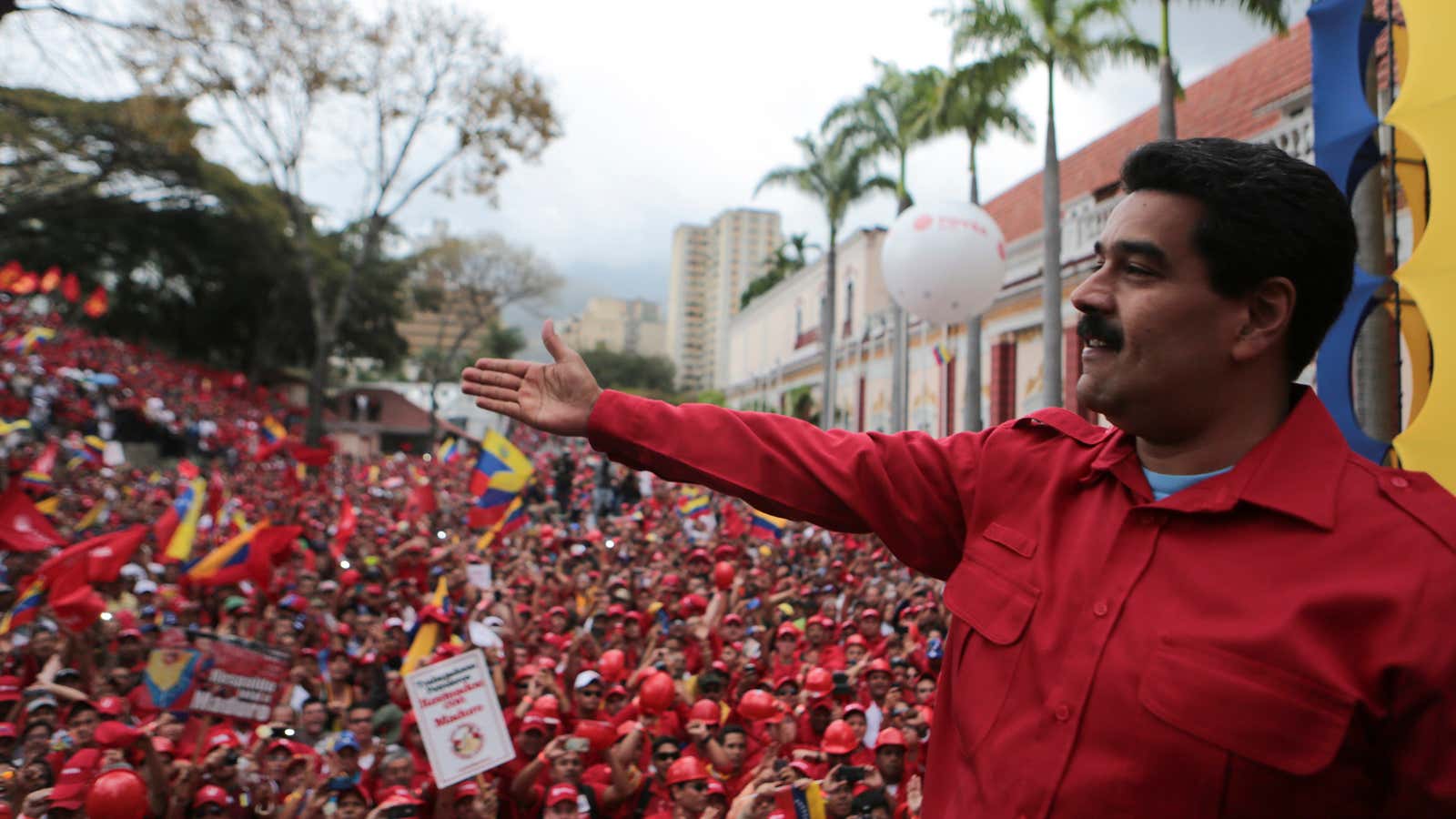Sometimes it takes a crisis to find out who’s got your back.
Such is the case for the government in Venezuela, where massive, and at times deadly, protests are being waged against the country’s leadership. On one hand, neighbors like Argentina, Bolivia, and Ecuador have made clear their unconditional support for Venezuelan president Nicolas Maduro. On the other, leaders in places like Colombia, Chile, and Peru have not.
These alliances largely—but not always—reflect political and economic interests. Argentina is run by a leftist government which, like Venezuela, has been imposing price controls to curb high inflation; indeed, many consider the countries “brothers in crisis.” Ecuador, for its part, is run by a president some see as an ideological successor to the late Venezuelan ruler Hugo Chavez; the country also has oil wealth in common with Venezuela, which brings the two together on energy projects.
Meanwhile, the countries withholding official support aren’t necessarily all right-wing opponents of Venezuela’s “Bolivarian revolution.” While Chile and Colombia’s ruling parties are both considered conservative, Peru’s is decidedly left-leaning, as are the governments in Brazil and Uruguay, which have been relatively quiet about the protests. The reluctance to pledge support for Maduro is likely down to the growing discomfort over Venezuela’s chronic goods shortages, inability to curb poverty, and heavy-handed approach to dealing with political opposition.
Whatever the case, a line has been drawn between Venezuela’s closest friends and those who would rather keep their distance.
Who is giving their full backing to the Venezuelan government:
- Bolivia‘s government has publicly expressed (link in Spanish) “total support for the democratic country of Venezuela, its democratically elected president Nicolás Maduro, and the entire Bolivarian Revolution in Venezuela.”
- Ecuador is also on board. ”We know what’s happening in Venezuela, we know the violence is coming from the same right wing fascism that wants to take hold of Quito,” President Rafael Correa said on Feb. 14 (link in Spanish).
- Argentina‘s foreign ministry, meanwhile, has taken a similar tack. “After recent events in the Bolivarian Republic of Venezuela, the Argentine government reiterates its strong support for the constitutional government elected by the citizens of that country, and notes the clear efforts of destabilization that confront institutional order in our brother nation,” it said in a press release.
Who is more reserved about their response to the protests:
- Sebastian Piñera, the president of Chile, has asked for an increased respect for freedom and human rights. “We want to ask for both sides to respect freedoms, including the freedom of speech and human rights, which all citizens should enjoy on behalf of the government,” he said at a cathedral in Santiago.
- Colombia‘s president Juan Manuel Santos urged Venezuela’s government to meet with its opposition. “From Colombia, I would like to call for calm, for opening channels of communication among the different political forces in Venezuela in order to ensure the stability of the country and respect for institutions and fundamental freedoms,” he said on Feb. 18.
- Peru‘s president Ollanta Humala simply pleaded for peace and dialogue (link in Spanish).
Although no country has condemned the Venezuelan government’s response to the protests outright, the comments from some fellow South American leaders are still getting on Maduro’s nerves. He felt the need to respond angrily to both Santos and Piñera (link in Spanish) earlier this week: “Enough with others meddling in our internal affairs. Venezuela’s problems will be resolved by Venezuelans,” he said.
